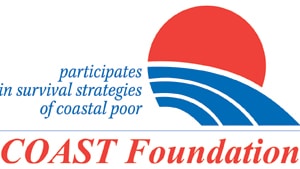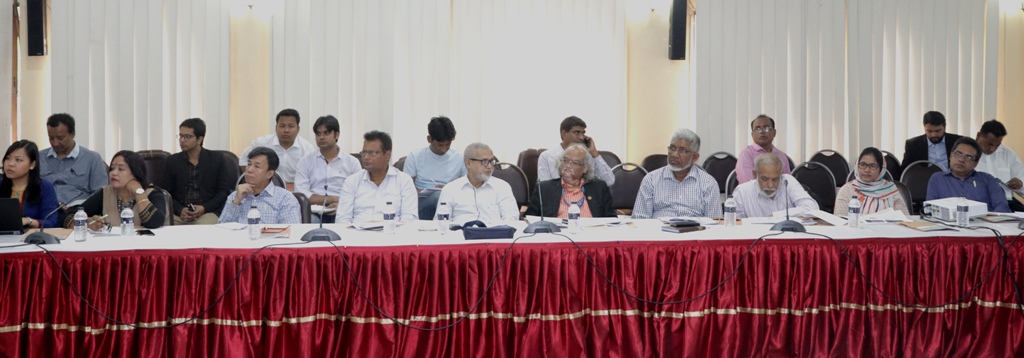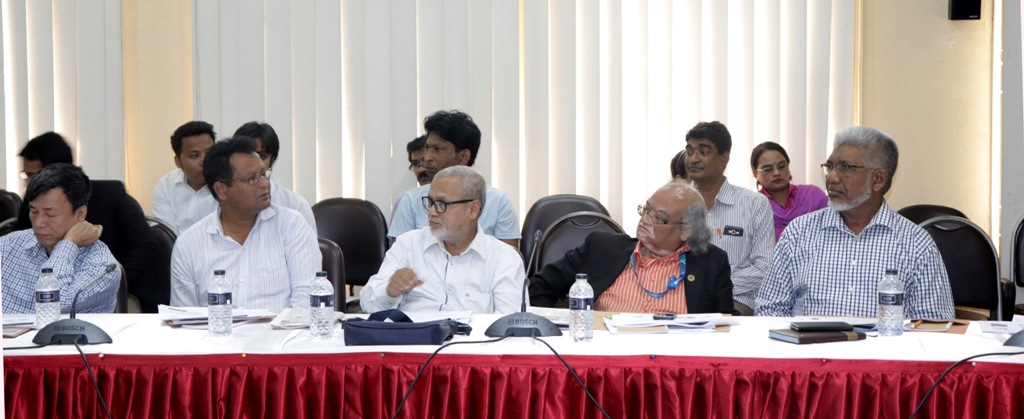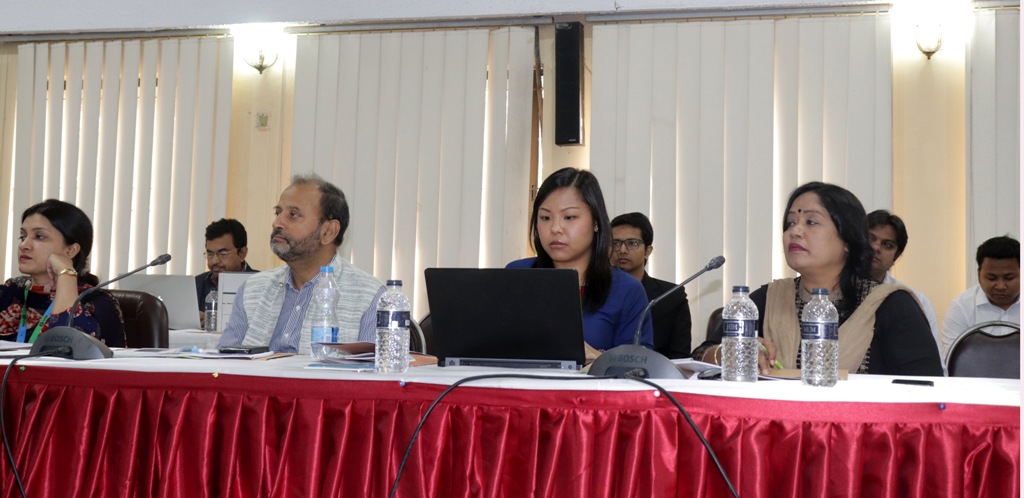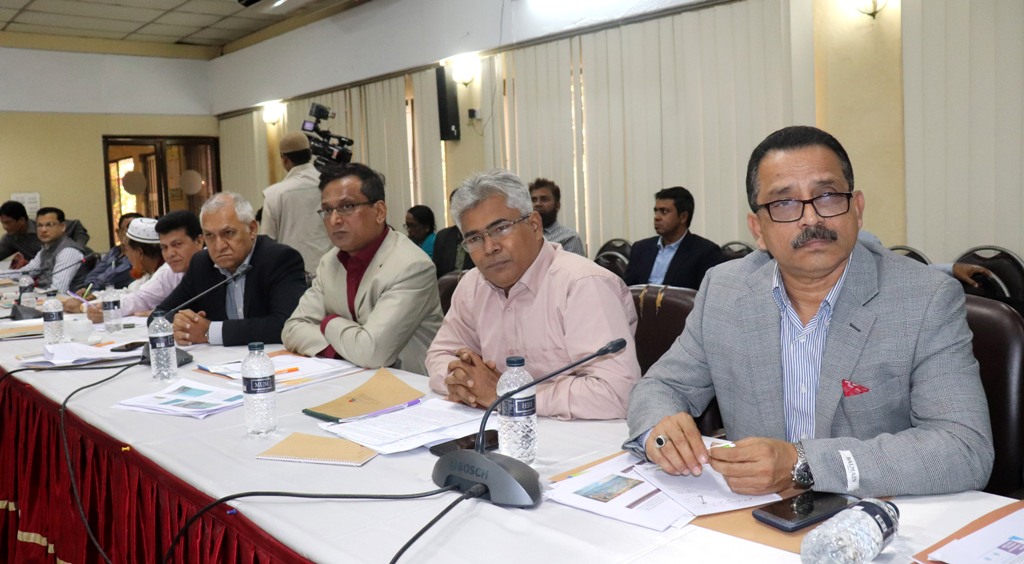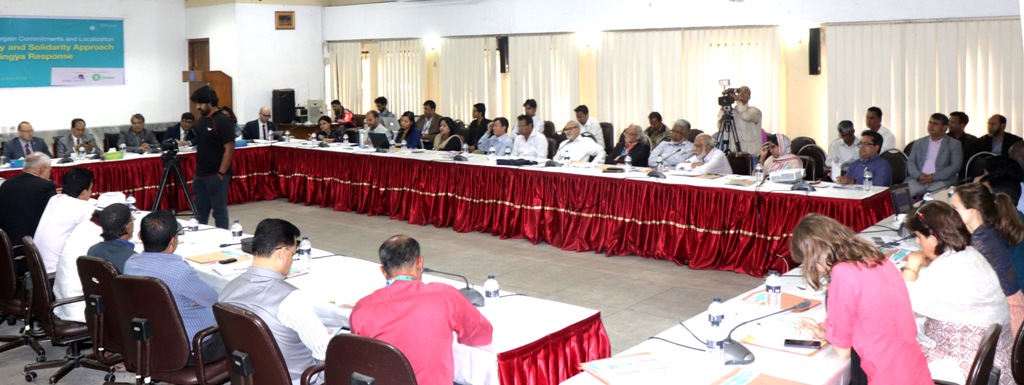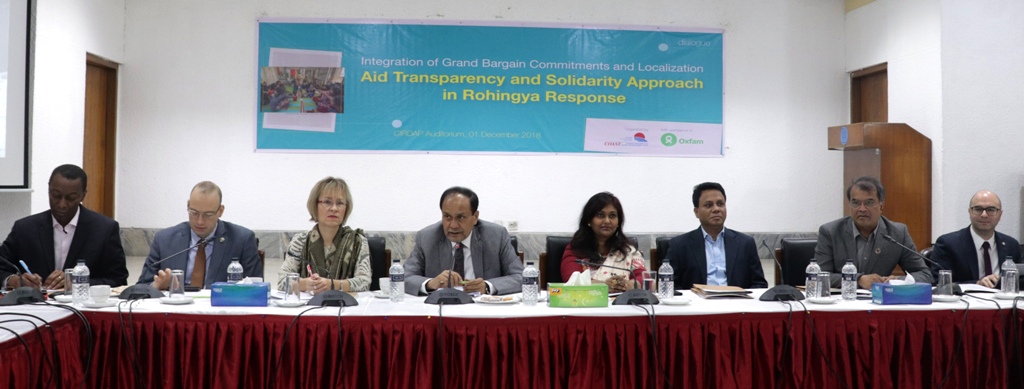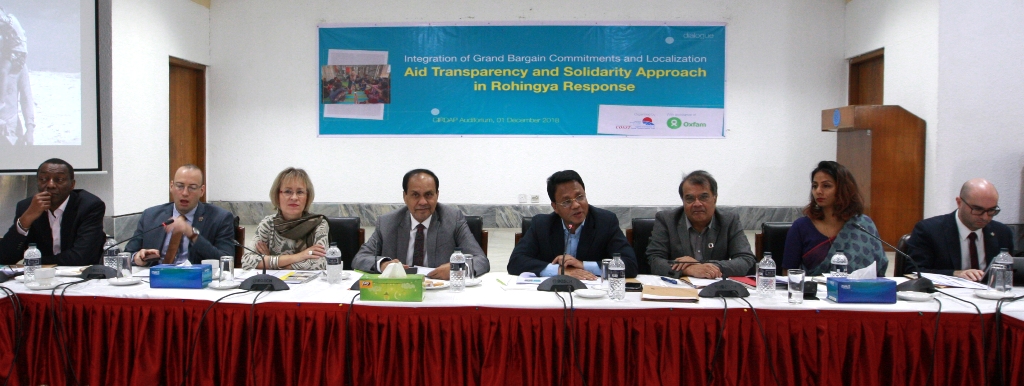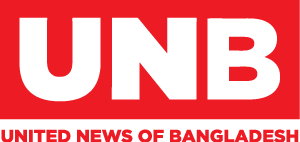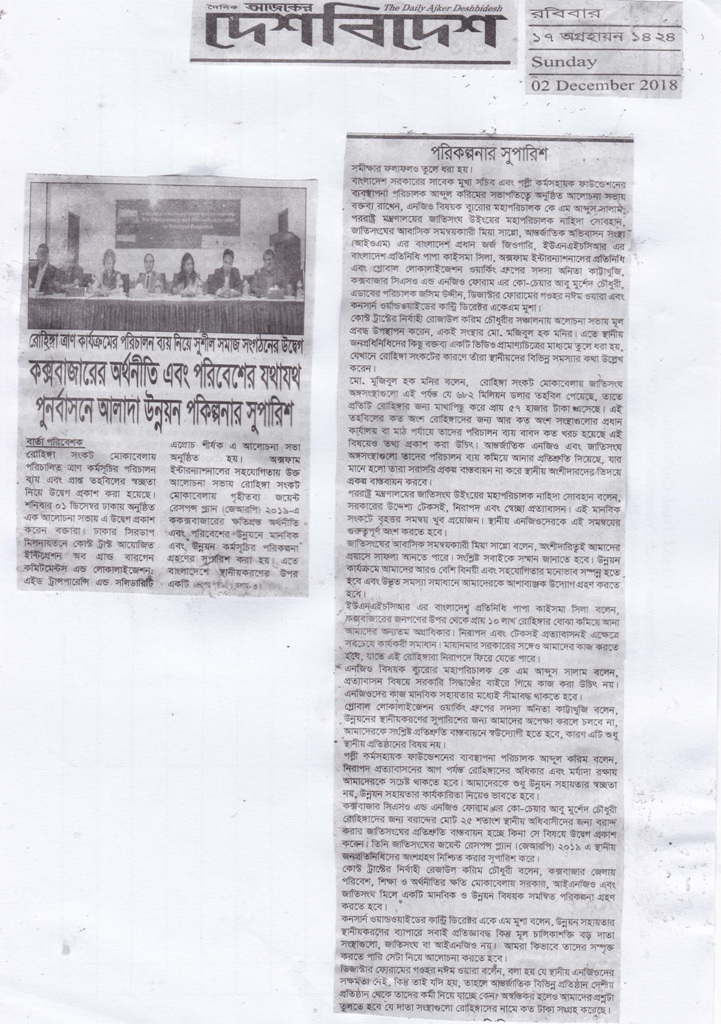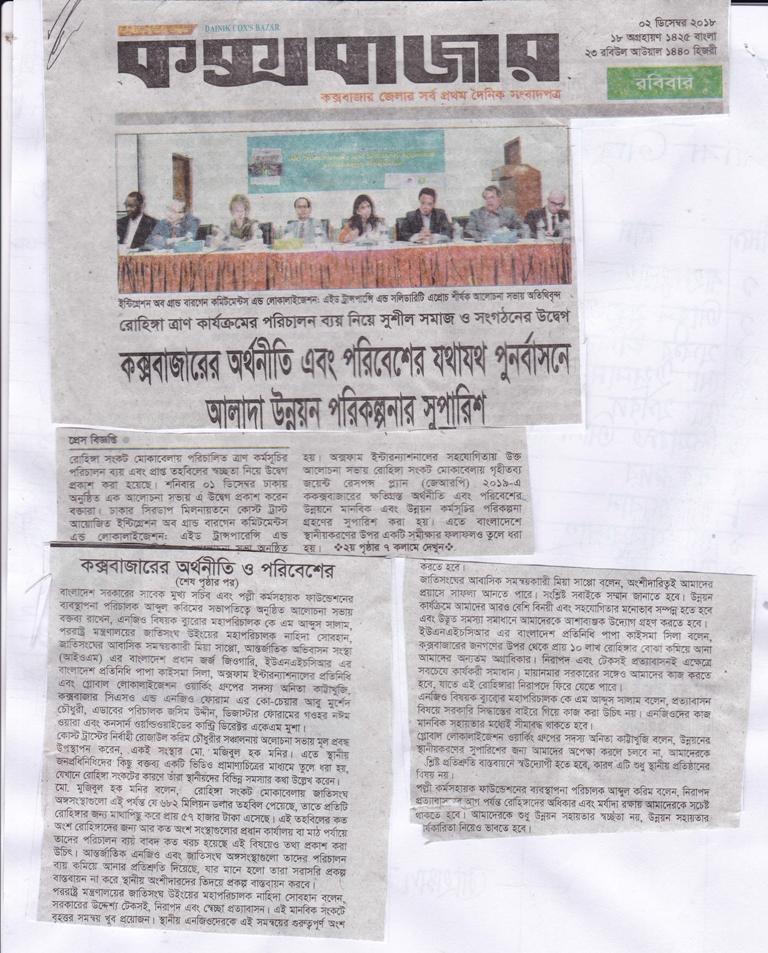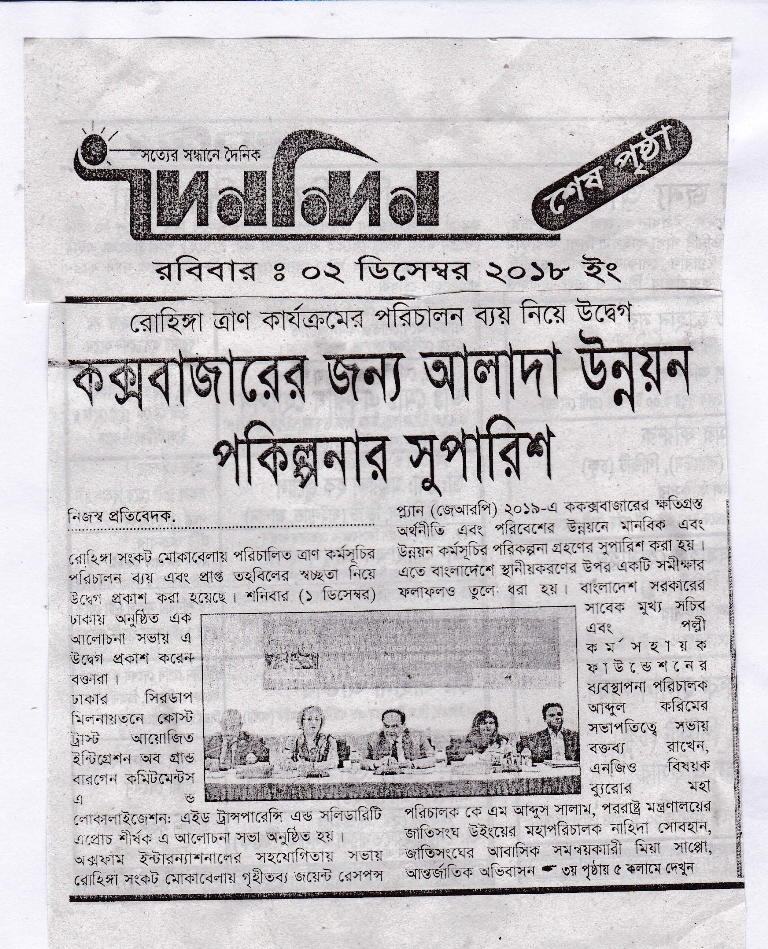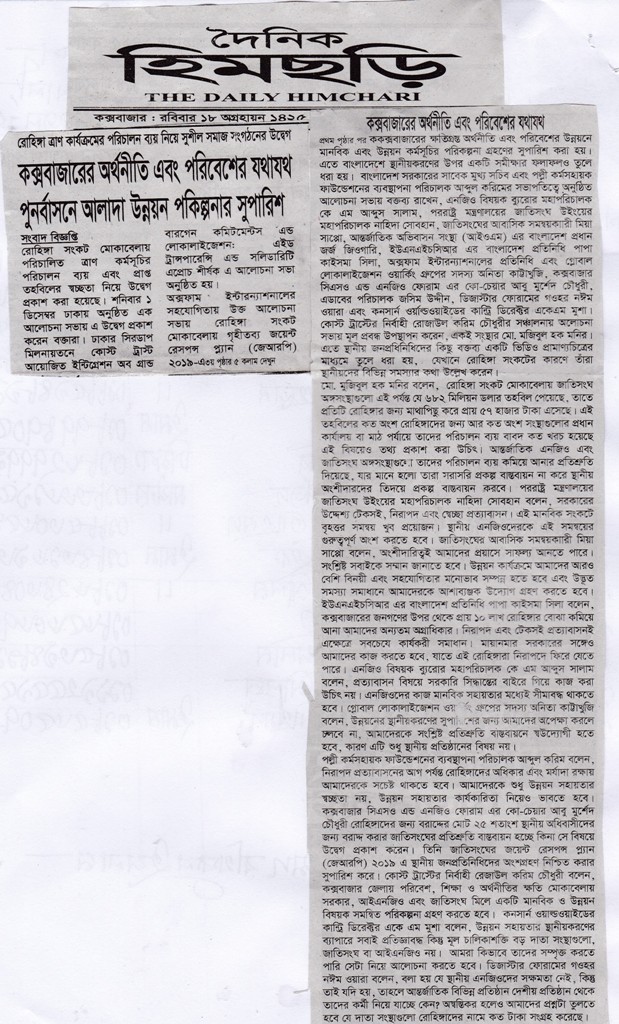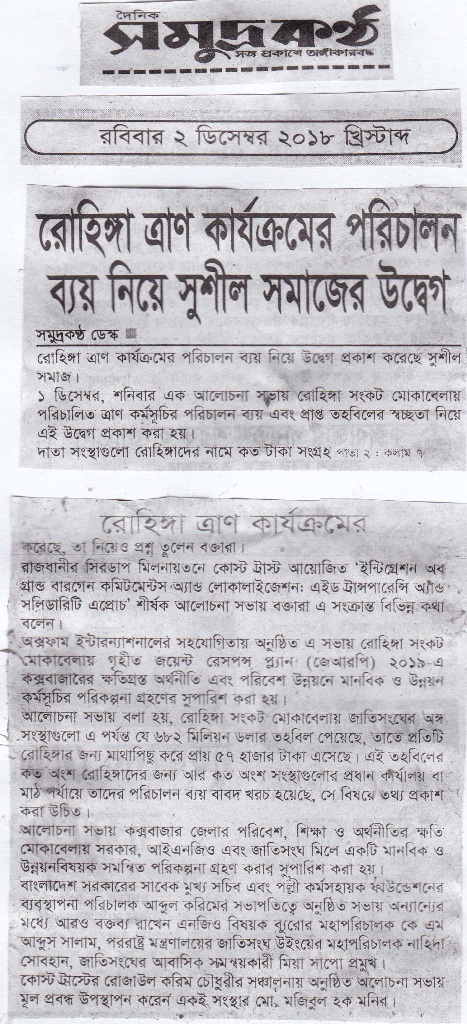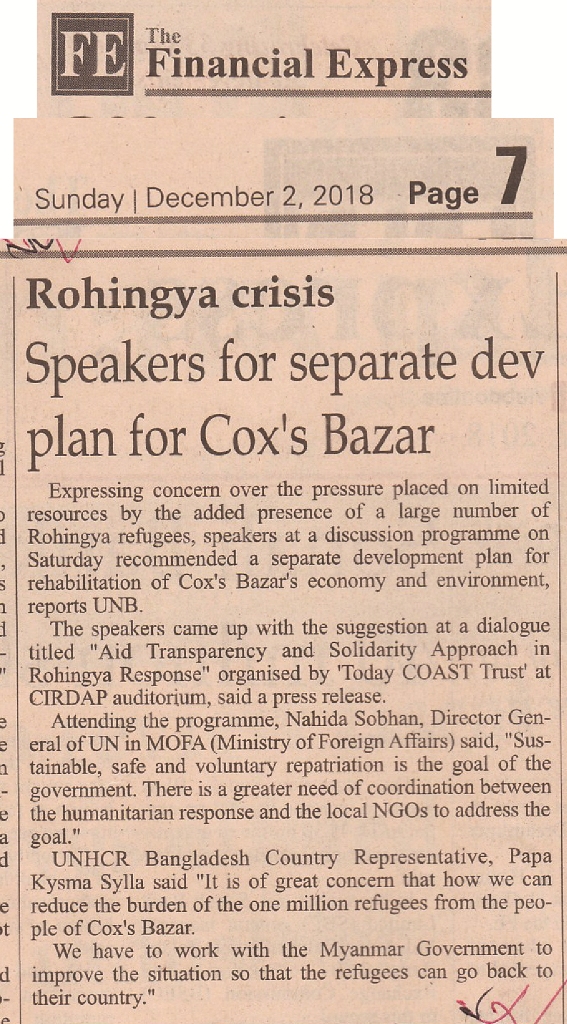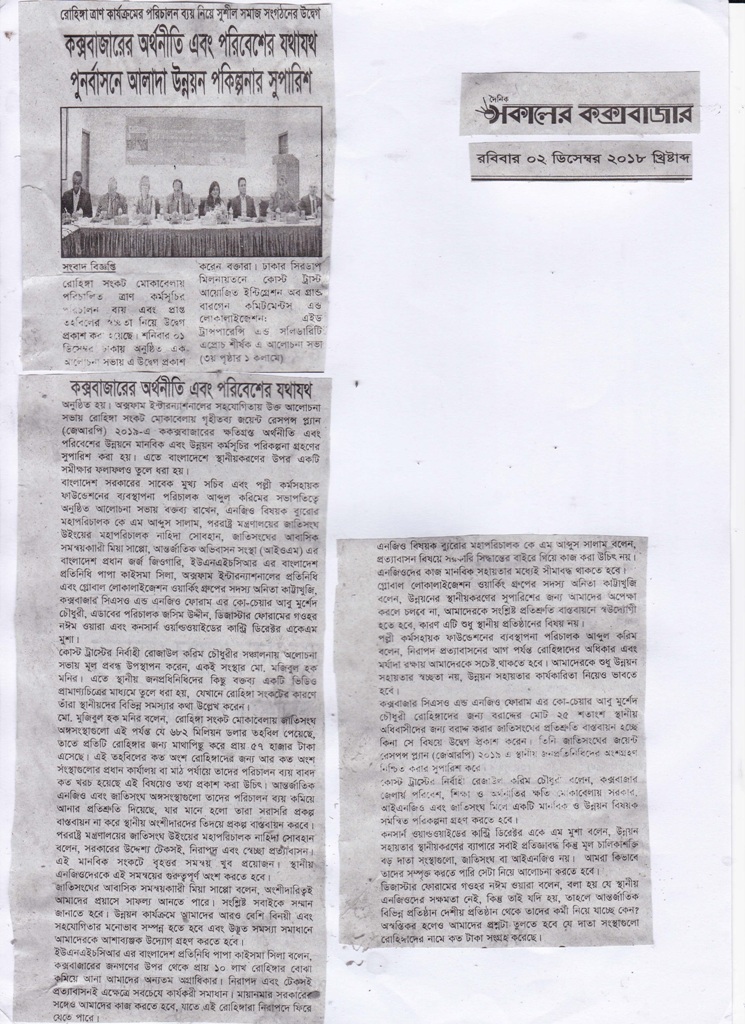Dhaka, 1st December 2018. Today COAST Trust has organized a dialogue titled “Aid Transparency and Solidarity Approach in Rohingya Response” with the assistance of Oxfam held at CIRDAP auditorium. Study findings based on UN commitment on Grand Bargain (GB) in Rohingya response has presented in the dialogue. Speakers has concerned on aid transparency and transaction cost of the UN agencies and INGOs and urged for 2019 response plan to be integrated with both humanitarian and development aspects of Cox’s Bazar specially to recuperate economic and environment damages of the district for hosting more than 1.2 million Rohingya refugees.
The dialog was chaired by Mr. Abdul Karim ex Principle Secretary to the Government and Managing Director of PKSF while the Chief Guest was Ms. Nahida Sobhan representing the Foreign Secretary and the Chair of National Task Force for Rohingya refugee response. Other speakers include UN Resident Coordinator Ms. Mia Seppo, IoM Country Director Mr. George Gigauri, UNHCR Bangladesh Country Representative Mr. Papa Kysma Sylla, Ms. Anita Kattakuzhy of Oxfam International, Mr. Abu Morshed Chowdhury of Cox’s Bazar CSO NGO Forum (CCNF) and ADAB Director Mr. Jashim Uddin. Mr. Rezaul Karim Chowdhury of COAST moderated the dialogue. Mr. Mujibul Haque Munir of COAST has presented the key note presentations.
Mr Mujibul Hauqe Munir in his keynote presentation said that, in the last 11 months $3284 is revived for per Rohingya family. However, due to lack of full transparency, there is no clue on how much is spent for central and field operation cost, expatriate cost, etc. In view of Grand Bargain commitments UN agencies and INGOs has a commitment for aid transparency and continuous try out of reducing transaction cost especially implementing GB. It means working through local NGOs, CSOs and local government agencies.
Ms Nahida Sobhan Director General on UN in MOFA (Ministry of Foreign Affairs) says in her speech, Sustainable, safe and voluntary repatriation is the goal of the government. There is a greater need of the coordination in the humanitarian response including the local NGOs to address this need.
Ms. Mia Seppo the UN Resident Coordinator says in her speech, it is the partnership that allows us to deliver on the ground and we have to be respectful to everybody involved in the response. Our footprint in development should be more humble and cooperative.
UNHCR Bangladesh Country Representative Mr. Papa Kysma Sylla says, one of the priority is how we can reduce the burden of the 1 million refugees on the people of Cox’s Bazar. We have to work with the Myanmar Government to improve the situation so that the refugees can go back to their country.
KM Abdus Salam, DG, NGOAB said, NGOs should not to go beyond the humanitarian support by exceeding the government’s decision about repatriation.
Ms. Antia Kattakuzhy of Oxfam International said that, we can’t wait for the recommendations about GB to be raised but to start by ourselves as it is not the agenda of local organizations only. All of us should have one common perceptions on the issues of Grand Bargain.
Mr. Abdul Karim the Chair of the dialogue said Grand Bargain is signed in 2016 by UN agencies, which is an important document for localization and reducing the transaction cost in the humanitarian response.
A short video clip on the speeches of local government leaders and officials of the camp area has been shown in the dialogue, which reflects plights of the local people. Abu Morshed Chowdhury of CCNF has expressed doubt on whether UN agencies has spent 25% of their allocation for host community as they committed.
Mr Rezaul Karim Chowdhury of COAST mentioned that, we should have a very specific plan considering both humanitarian and development issues of the entire district to recover the damages on environment, education and economy of Cox’s Bazar. This is important because this damage is creating tensions in the locality.
AKM Musha, Country Director of Concern Worldwide says, everyone is committed on GB particularly on localization. No one denied that. Donors are the big factor in this regard, not the INGO or UN agencies. We need to discuss on the practical arrangement on how we can engage them.
Nayeem G Wahra of Disaster Forum says, It is said that local NGOs don’t have capacities. If we don’t have the capacity then why our staff is being poached every now and then by the INGOs. The uncomfortable questions to be answered like how much money is raised in the name of Rohingya refugees.
Please download related paper [Bangla Press Release] [English Press Release]
- Draft Slide on Presentation 1. (English) Dialogue Objective, Principles and CCNF Concern on Planning & Coordination
- Draft Slide on Presentation 2. (English) Study done by COAST (Brief Report)
- Draft Slide on Presentation 3. (English) Mission Report and some other Recommendations in view of Grand Bargain Commitments.
- CCNF position on next JRP 2019 preparation and its methodology [Download]
- Some talking points from CCNF members on Rohingya Relief / ISCG Coordination to the review mission _Draft [Download]
- Mission report of Grand Bargain localization team Bangladesh mission, October 2018 [Download]
- Localization Approach to Rohingya Response [Download]
- Charter 4 Change [English] [Bangla]
- Grand Bargain Outcome: Ten Streams (English) (Bangla)
- 18 Expectations and Demands from Bangladeshi NGOs [Bangla] [English]
- 10 Point Demand Towards a Sustainable Rohingya Response [Bangla] [English]
Photos
Newspaper:


